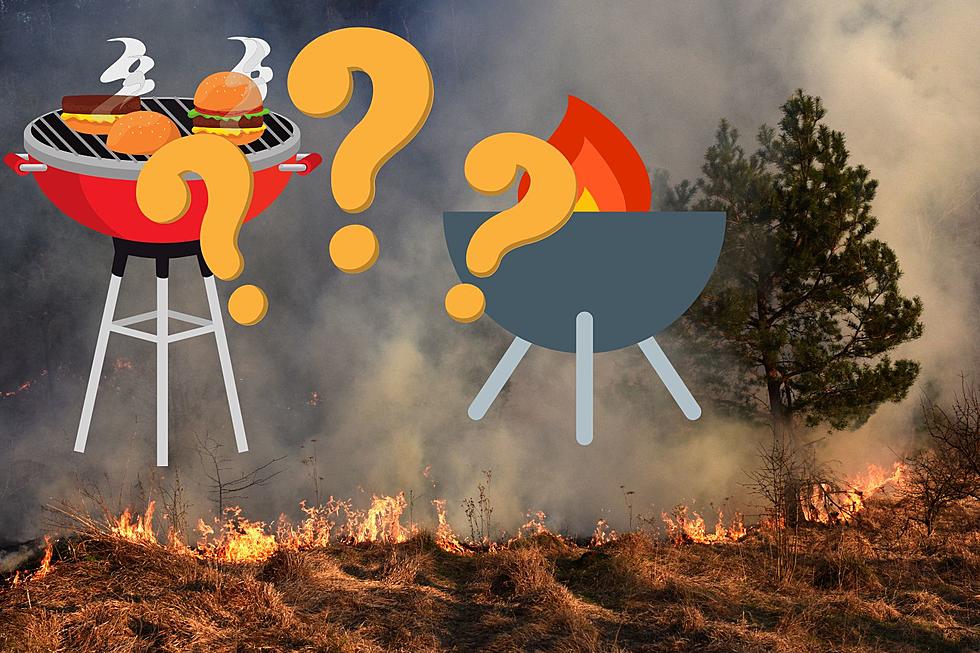
Get digging! Spring planting guide for New Jersey
❓ When can I start planting flowers and vegetables in New Jersey?
🔺 You will have to do some extra work due to the mild winter
❓ How do I keep deer out of my garden?
This time of year, Sandra and I can't wait to get outside to start digging in the dirt and planting flowers, herbs and vegetables. Typically, we wait until after Mother's Day, but is that right?
This edition of "Asked and Answered" was prompted by a reader's questions about all the weeds she is seeing in her lawn and planting beds. Was it due to the mild winter?
For answers to these and other gardening questions, I turned to Rutgers University Master Gardener Kelly Thompson.
Kelly is a certified horticulturist and educator on sustainable gardening practices as well as a consultant on plant-based living. She is an expert on New Jersey’s many plant varieties, climate, soil and growing conditions.
(Photo: Kelly Thompson)
Kelly was also an absolute delight to talk to, and her passion for planting is evident.
How did New Jersey’s mild winter impact the spring planting season?
Weeds, weeds, weeds!
A cold winter tends to kill off or at least diminish garden weeds.
Thompson says that didn’t happen this year.
“We have quite a few more overwintering weeds,” she says. “Some things died back, but then some things are quite prolific. I'm seeing chickweed, I'm seeing hairy bittercress. These are common early-season weeds that seem to have gotten a jumpstart with this mild winter.”
Great. How do I get rid of them?
Get your gloves. Thompson says the best way is to just start yanking them out.
"My best advice is hand pulling as you are cultivating your soil.”
If you’re worried about your back, there are many tools you can buy that can save you from bending over. Find one that works for you.
But I have SO MANY weeds. Can’t I just spray them with something?
Yes, you can. But be careful.
Thompson recommends whatever you use, make sure it is organic.
“There's something called integrated pest methods that a lot of the university extensions go by,” she says, and they can help guide you to the right types of sprays.
Whatever you settle on, make sure you apply it in the warmest part of the day. It helps to activate the product and will give you better results in terms of killing the weeds.
What about other weed killers, like Ortho or Round-up?
Thompson doesn’t recommend them. Most garden experts and cooperative extensions don’t either.
Aside from the danger to your existing plants, they can be harmful to the environment.
“When you're spraying anything, you can also hurt your existing perennials and plants that are already in the ground.”
Thompson says there are plenty of organic alternatives that are just as effective as harsh chemical applications, and they are safe for the environment and your existing plants.
For spot applications in gardening beds, Thompson also recommends horticultural vinegar. This vinegar can be found at garden centers and hardware stores. It is essentially acetic acid many times stronger than culinary vinegar. It can kill weeds in as little as 24 hours. However, it can also kill desired plants, so be careful when applying.
When is the best time to apply any type of weed killer?
Sunshine is your friend.
Especially with organic products, Thompson says temperature matters.
“When you're using the organics, you want to make sure that it's at the hottest point of the day because the sun is one of the factors that help weed killers work.”
When can I start planting? Do I have to wait until the danger of frost has passed?
Nope. Get digging.
“Right now is a great time to plant,” Thompson says.
“Roses, azaleas, hollies and hardy shrubs can all go in the ground. The ground is definitely workable. It’s a wonderful time to start.”
Perennials can also be plated now, as well. If you are looking for early color, pansies are perfect.
Garden herbs can also be planted now, with the exception of basil, which needs warmer temperatures.
Should I fertilize when I plant?
Definitely.
While there are a lot of fertilizers on the market, Thompson again urges an organic solution.
“I am a big promoter of compost, compost, compost, compost,” she says. “If you don't have your own compost pile, there is some really great organic compost on the market right now, especially at your local garden centers.”
Is compost better than fertilizer?
It sure can be.
Thompson says natural compost helps to build the soil and can actually impede weeds by nourishing healthy plants.
Chemical fertilizer dissipates after a while and then has to be reapplied.
According to Thompson, “Compost actually activates the nitrogen, phosphorus, and potassium (in the soil) to get to the roots of the plants a lot easier. Compost is number one.”
What about mulch?
Some good, some bad.
“Mulch is a great way to impede weeds and retain soil moisture,” Thompson says, but she prefers natural organic mulch.
That includes basic leaf mulch, cypress and pine needle mulch.
She advises to stay away from those dyed mulches because they can contain pesticides and other toxic chemicals.
“Shredded pine, shredded cedar, shredded cypress, they’re the good ones.”
My dog likes to eat the mulch. What do I do?
Thompson says the SPCA recommends the shredded cypress mulch if you are going with a wood mulch.
That’s in part because it tends to deter chewing, but also because it’s not toxic if your dog does wat it. It is also less likely to get stuck in your dog’s digestive tract and cause a serious medical issue.
“Pallet mulches that are dyed black and red, those are no good. I wouldn’t even want them around my plants, let alone an animal.”
How much (or how little) should I water my plants? How do I know?
Watering is essential to keeping healthy plants but incorrect watering techniques can put your plants at risk for disease or even kill them.
The best way to water your plants is at ground level. That way you avoid damp leaves, which could lead to mold or other diseases.
Water them deep. Whether using a watering can or a hose, make sure you water long enough to allow the water to sink deep in the soil. This promotes deep root growth and will help keep your plants healthy in the hottest summer months.
Surface watering allows water to evaporate and can stress plants.
As a rule of thumb, flowers and vegetables need about an inch of water per week. Double that in the hottest days of summer.
Is there a time of day that is best to water?
Thompson says the morning is best.
“Watering at night promotes mold.”
What about hanging baskets?
Make sure you pick the right plants for where your basket will hang.
“If you have hanging baskets in full sun, you want something that can take the heat,” Thompson cautions. “Lantana works really, really well.”
An expert's trick on hanging baskets
If you hate the look of those plastic pots, just hide them.
“You can actually take a hanging plastic basket, remove the plastic hangers and just set it inside a coconut moss basket,” Thompson advises. “The plastic will also help keep those flowers a little more moist.”
How do I keep the deer and rabbits from eating my garden?
Ugh. This is one of the most frustrating things about gardening. You spent all this time (and money) cultivating a perfect little backyard oasis, only to have it mowed down by a herd of deer in one night.
“The key with deer are they're creatures of habits. They are edge of the forest creatures and they like to visit the same place quite often," Thompson said.
She recommends applying deer and rabbit repellent now to prevent deer from getting into the routine of visiting your yard.
Hang some “deer tape” in your garden and around your beds. (You can find it at a garden center) Then spray it with deer repellent.
Thompson also recommends using multiple repellent methods, and alternating them every month so the deer don’t get too familiar or comfortable with the scent of the product you are using.
For example, use a spray repellent one month, then use a deer repellent canister the next month.
They are all effective, Thompson says, and are safe for your pets and the environment.
“Most of them contain dried blood. When the deer and the rabbits smell that, they feel like there are predators in the area.” Other repellents contain very pungent scents like mint and garlic.
Are there deer-proof plants?
Nope.
There is no such thing as a “deer-proof” plant. There are some that are considered deer-resistant. The bottom line, however, is that deer will munch on just about anything.
Your best strategy, according to Thompson, “is to use plants that are least likely to be browsed by deer, but there's nothing really foolproof. The only thing I have seen deer not eat are boxwood because they have a very strong scent.”
This plant can help repel deer
Highly scented plants can help keep deer away. Thompson recommends lavender.
“I have never experienced deer touching that,” she says.
A special deer treat!
“Anything a fair game when the deer are prolific and they're hungry,” Thompson warns.
That is why it is so important to start your deer repellent regimen early in the season.
And those pretty spring pansies you’re planting now, Thompson calls those “deer candy.”
Deer absolutely love pansies, and if you don’t have deer repellent down now, it’s like a signal to the deer that your backyard is a smorgasbord.
That’s a lot to take in, and I’ve never had a garden before. I don’t know where to start.
Just start digging.
“My best piece of advice is to start small and start with something that really gives you pleasure," she said. "A great way to start a little garden, even if you have a tiny space, is a container garden.”
She also suggests heading to your local garden center. They are a wealth of knowledge and can help you select the right plants for the right location. Some will even help you plant them in your container.
Do you have a specific gardening question? Let me know below, and I’ll try and get you the answer.
And feel free to visit Kelly Thompson at Seasons Garden Center in Washington Crossing, PA. She would love to meet you and answer any questions you might have!
Happy planting!
LOOK: See how much gasoline cost the year you started driving
2023 Seaside Heights Polar Bear Plunge
Eric Scott is the senior political director and anchor for New Jersey 101.5. You can reach him at eric.scott@townsquaremedia.com
Click here to contact an editor about feedback or a correction for this story.
More From 94.3 The Point






